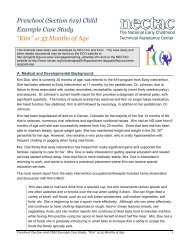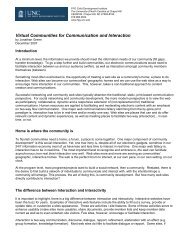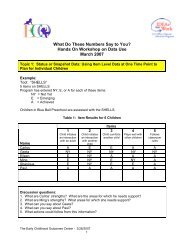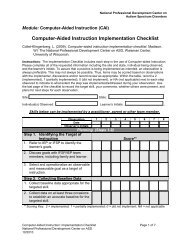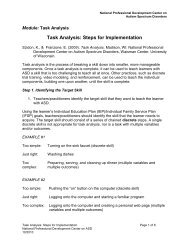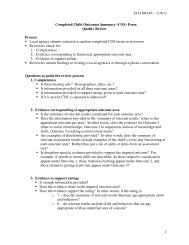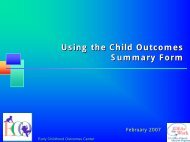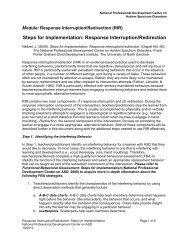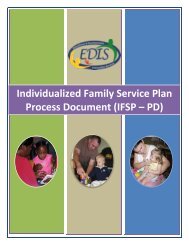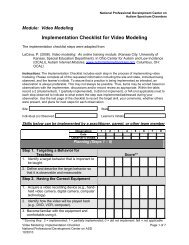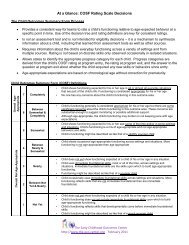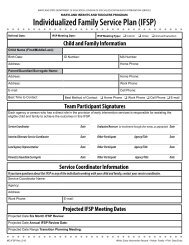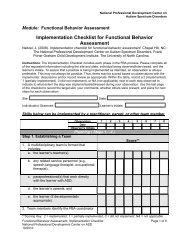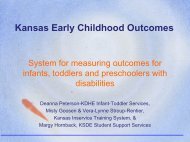Summary Information: Ages & Stages Questionnaires - FPG Child ...
Summary Information: Ages & Stages Questionnaires - FPG Child ...
Summary Information: Ages & Stages Questionnaires - FPG Child ...
You also want an ePaper? Increase the reach of your titles
YUMPU automatically turns print PDFs into web optimized ePapers that Google loves.
<strong>Ages</strong> & <strong>Stages</strong> <strong>Questionnaires</strong> (ASQ) – 5/9/06<br />
<strong>Summary</strong> <strong>Information</strong> (Continued): <strong>Ages</strong> & <strong>Stages</strong> <strong>Questionnaires</strong> (ASQ), Second Edition (1999)<br />
How frequently it can be given<br />
Standardized tasks<br />
Based on observation in natural<br />
settings<br />
Instructions related to parent role<br />
<strong>Questionnaires</strong> are designed to be completed at specific ages (see above). Each questionnaire is valid<br />
for one month before and one month after the indicated age<br />
No<br />
Yes<br />
Yes. Parents complete questionnaires<br />
Data provided on reliability Yes. Test-retest reliability = 90% agreement; interrater reliability = 90%<br />
Data provided on validity Yes. Validity data collected using 1,763 assessments; overall agreement = 83% with a range of 76%-<br />
91%<br />
Web-based data entry<br />
Electronic scoring<br />
Other languages<br />
Who administers<br />
Training available through the<br />
publisher<br />
No. “ASQ Manager,” a computerized database program for individual children’s records is under<br />
development<br />
No. The “ASQ Manager tabulates scores, identifies areas in which the child needs further assessment,<br />
formats questionnaire information into a printable document for sharing with parents, and generates a<br />
letter to the parents explaining the results. The program can also generate reports of all children in the<br />
center, helping users identify which children need to be screened on a month by month basis, which<br />
children need follow-up assessment, etc.”<br />
Spanish, French, and Korean. Other languages under development<br />
Parents<br />
Yes<br />
Note: This is a preliminary draft developed by the Early <strong>Child</strong>hood Outcomes Center. We are still in the process of refining and revising this<br />
document which means that some of the categorizations could change based on additional discussion. We welcome your feedback to<br />
.<br />
2



